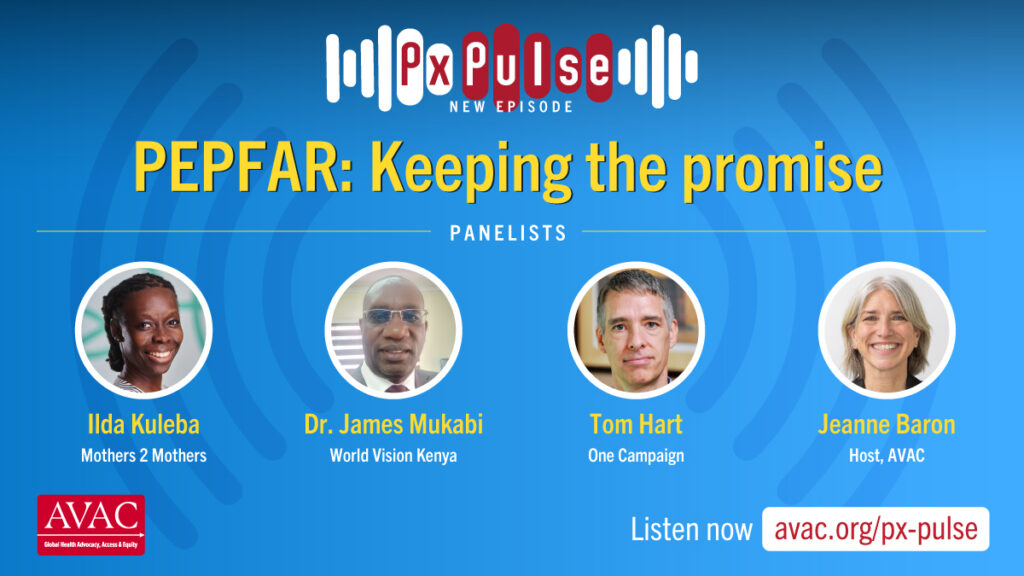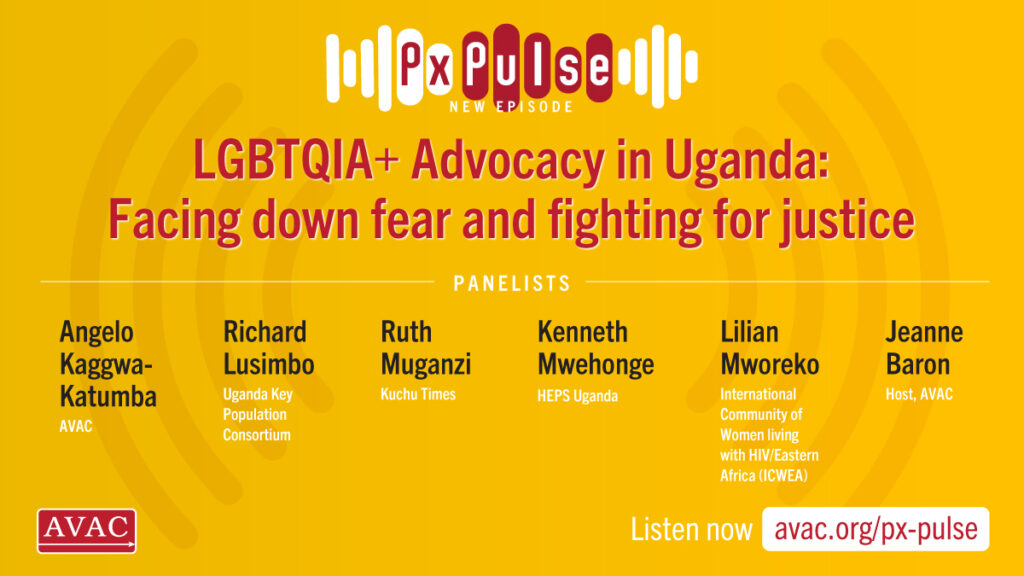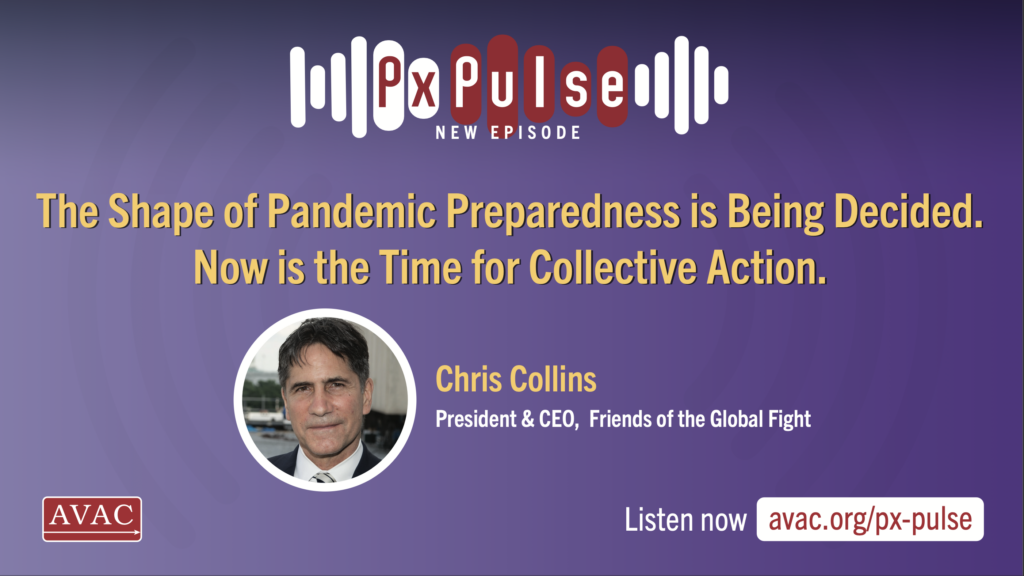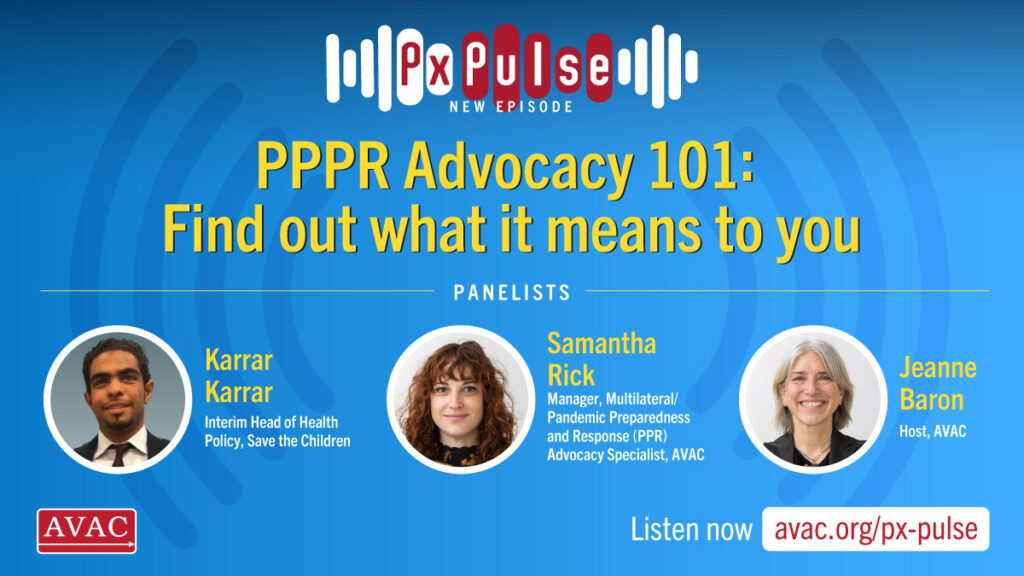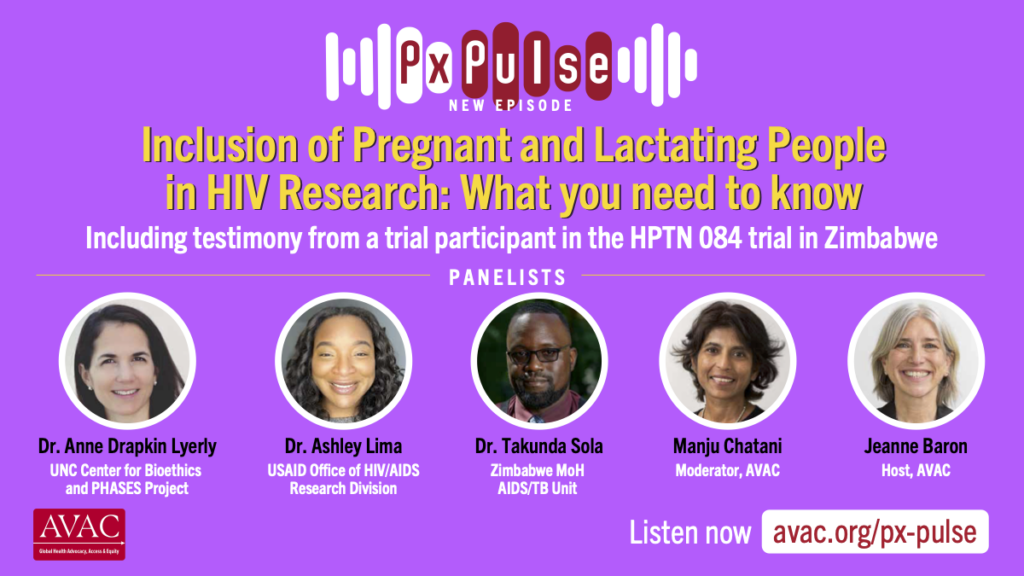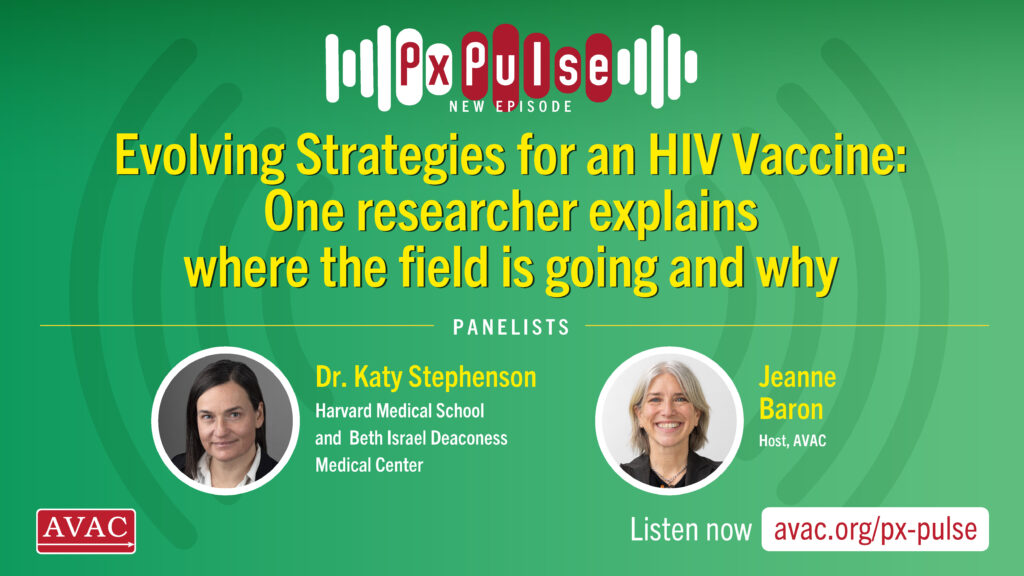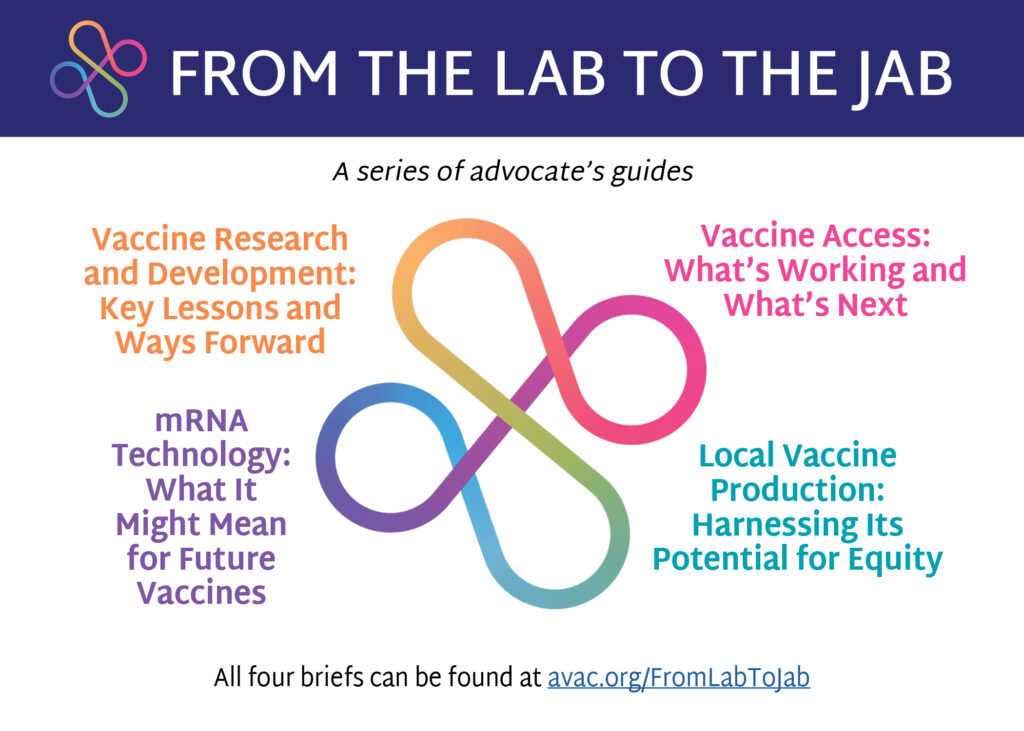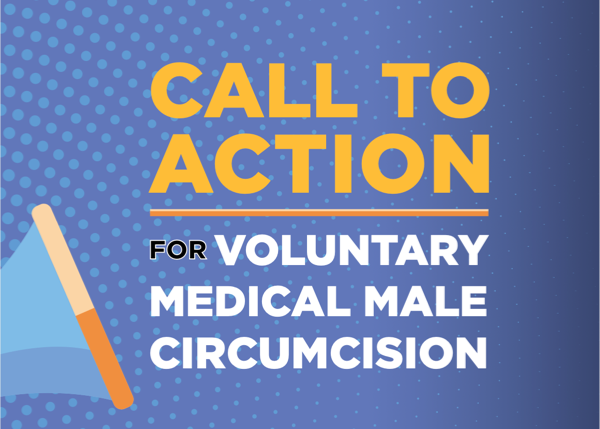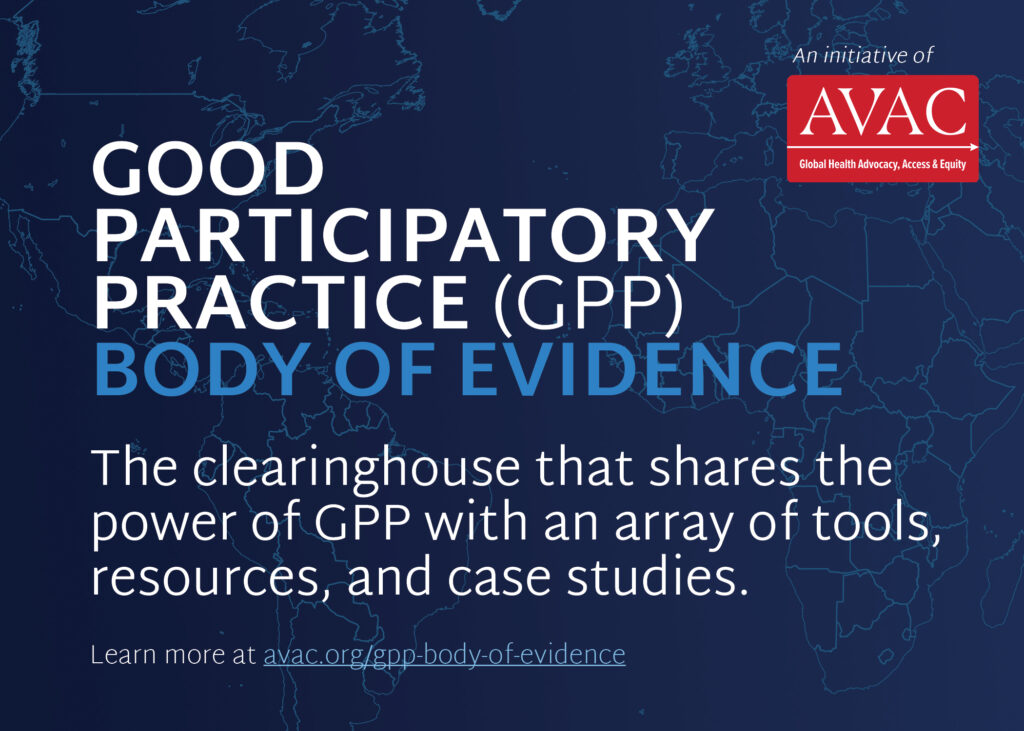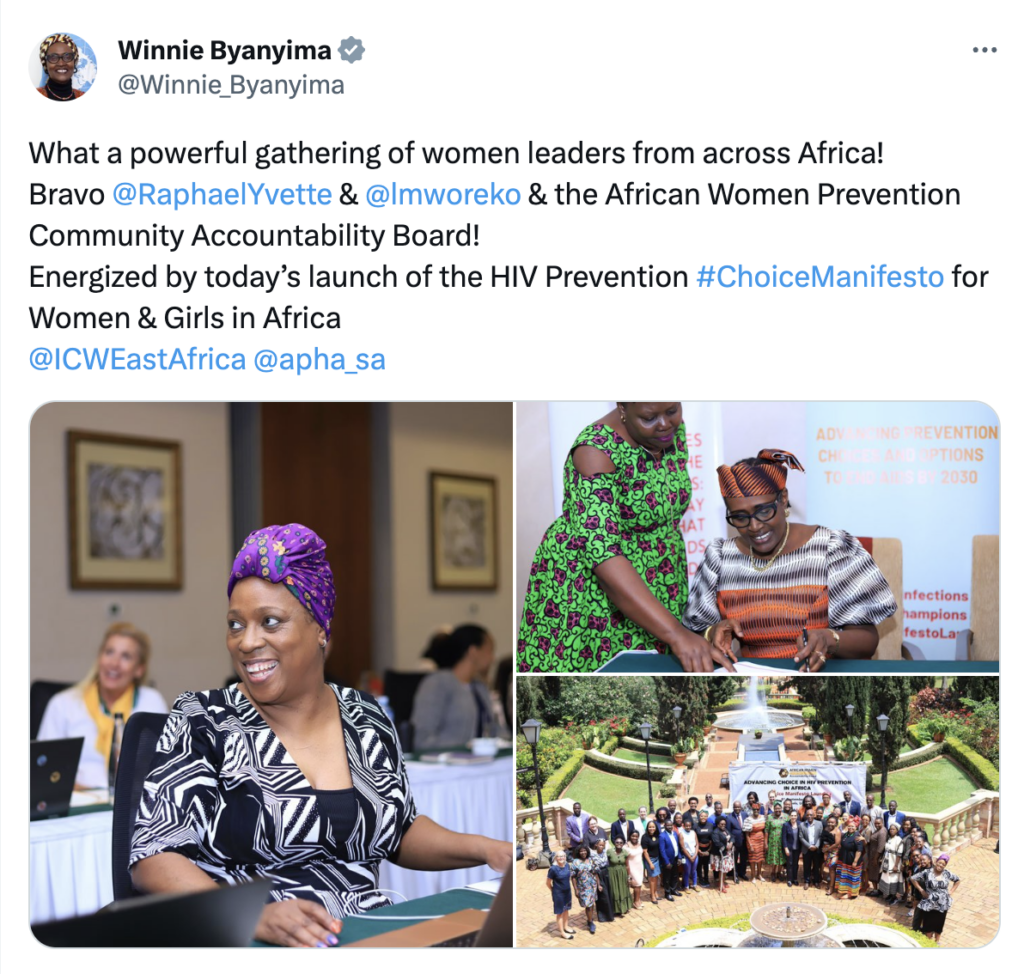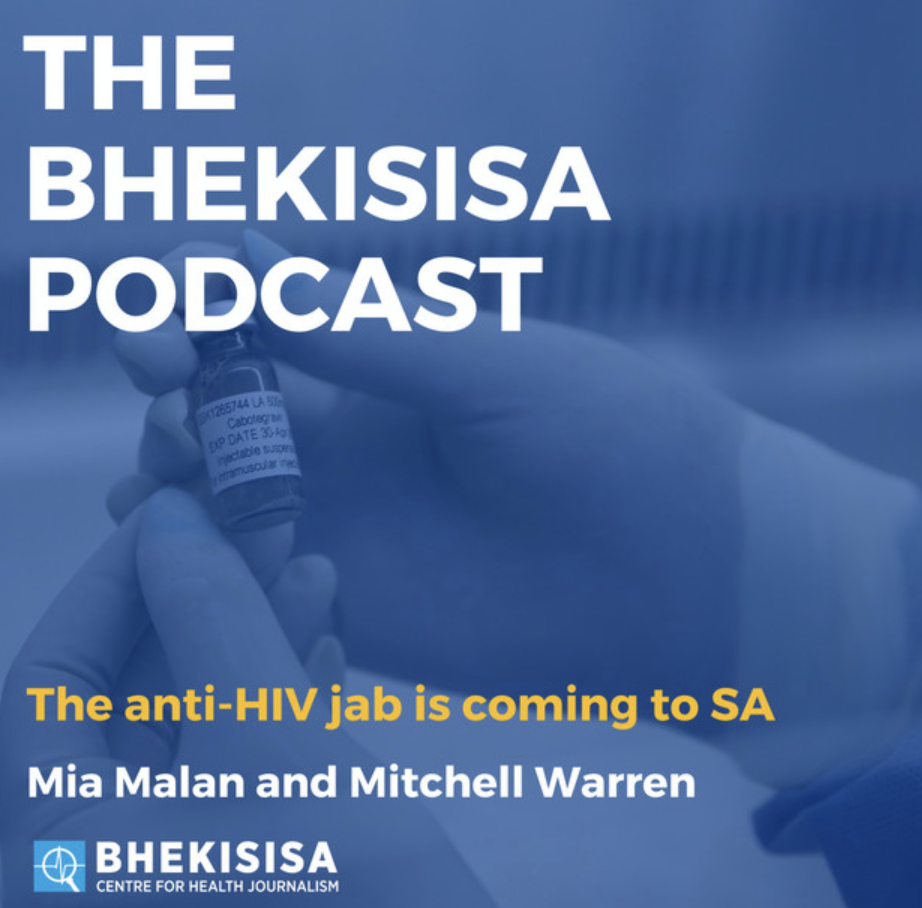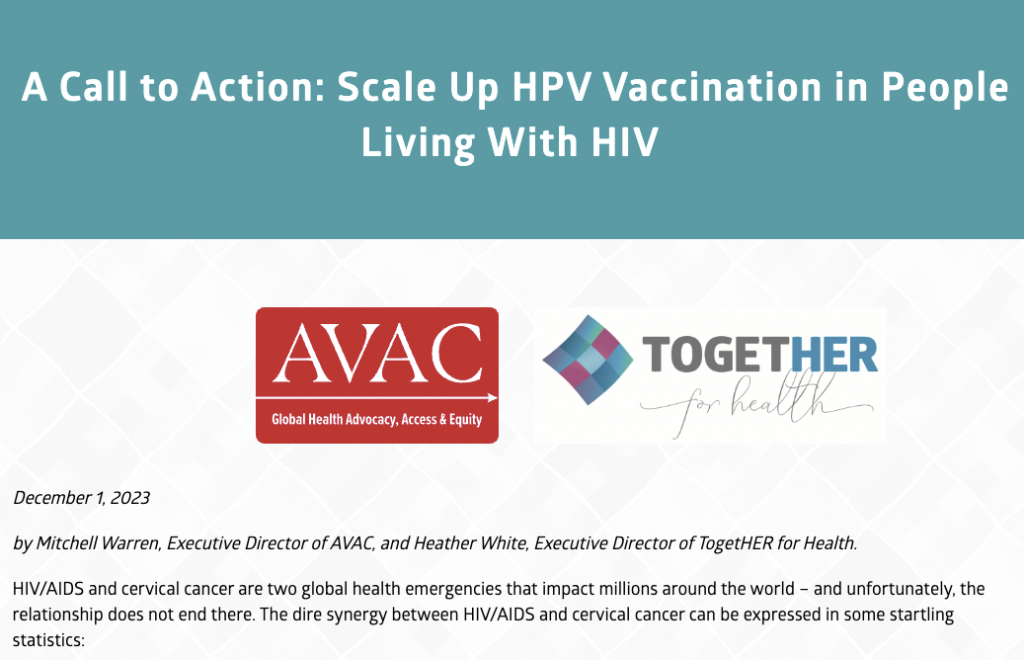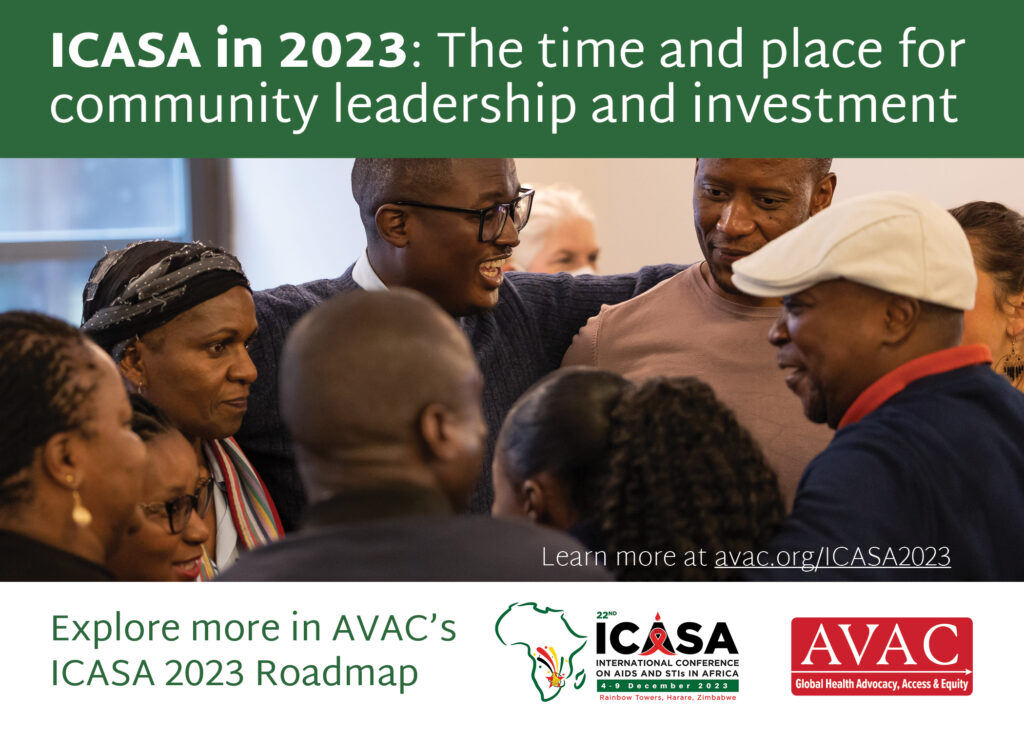New York, 6 December 2023 – Today the PrEPVacc trial team announced at a special session at the International Conference on AIDS and STIs in Africa (ICASA) in Harare, Zimbabwe, that they were stopping vaccinations in the study following a review by an independent data safety committee that determined there was little chance the vaccines being tested could stop HIV acquisition. The oral PrEP arms of the study will continue.
PrEPVacc was testing two different vaccine strategies against a placebo: one regimen combining a DNA vaccine with a protein-based vaccine (AIDSVAX), and another regimen combining DNA, MVA and a protein-based vaccine (CN54gp140).
“We always hope for a positive outcome in HIV prevention trials, and this news is disappointing,” said Mitchell Warren, AVAC executive director. “We look forward to seeing the full PrEPVacc data in 2024 and hope it will add to the body of evidence that is helping scientists understand how to develop better vaccine candidates that will one day protect against HIV.”
“The PrEPVacc outcome underscores yet again that the science of HIV vaccine development is extremely challenging,” he added. “Now is not the time to step back from vaccine research. There are several promising strategies in early-stage research that must continue, along with research for other HIV prevention options. We will not end HIV without ensuring that everyone who is vulnerable to HIV infection has a choice of effective and desirable prevention options.”
Importantly, PrEPVacc’s PrEP arms will continue. The study is testing two different formulations of daily oral PrEP, looking to see if a new formulation – F/TAF (also known as Descovy) – is at least as good in the trial population at protecting against HIV acquisition as F/TDF (also known as Truvada and the most widely used version of PrEP). The trial will provide the first data for F/TAF among cisgender women (who make up 87% of the just over 1,500 PrEPVacc trial participants). F/TAF is approved for use in the US and UK, but not for those individuals who have receptive vaginal sex, since previous trials regrettably did not enroll cisgender women.
The PrEPVacc study is scheduled to conclude in 2024 and data from all arms of the study are expected to be reported in the last half of 2024.
“The PrEP arms of PrEPVacc will provide important insights into the potential of expanding access of F/TAF for PrEP to women in East and Southern Africa who need additional options to protect themselves from HIV. Equitable access to new interventions should be a goal of every research program,” said Stacey Hannah, AVAC’s director of Research Engagement.
“PrEPVacc is a complex, innovative trial design, and, while the vaccine result today is disappointing, the trial team has worked from the outset to implement the Good Participatory Practice (GPP) Guidelines. The team’s hard work on the front-end to apply GPP to this trial is paying off especially now in the ability to deliver complex, disappointing results to trial participants, advocates, policymakers and other key supporters of PrEPVacc and of HIV prevention broadly.”
###
About AVAC
AVAC is an international non-profit organization that provides an independent voice and leverages global partnerships to accelerate ethical development and equitable delivery of effective HIV prevention options, as part of a comprehensive and integrated pathway to global health equity. Follow AVAC on Twitter @HIVpxresearch; find more at www.avac.org and www.prepwatch.org.
